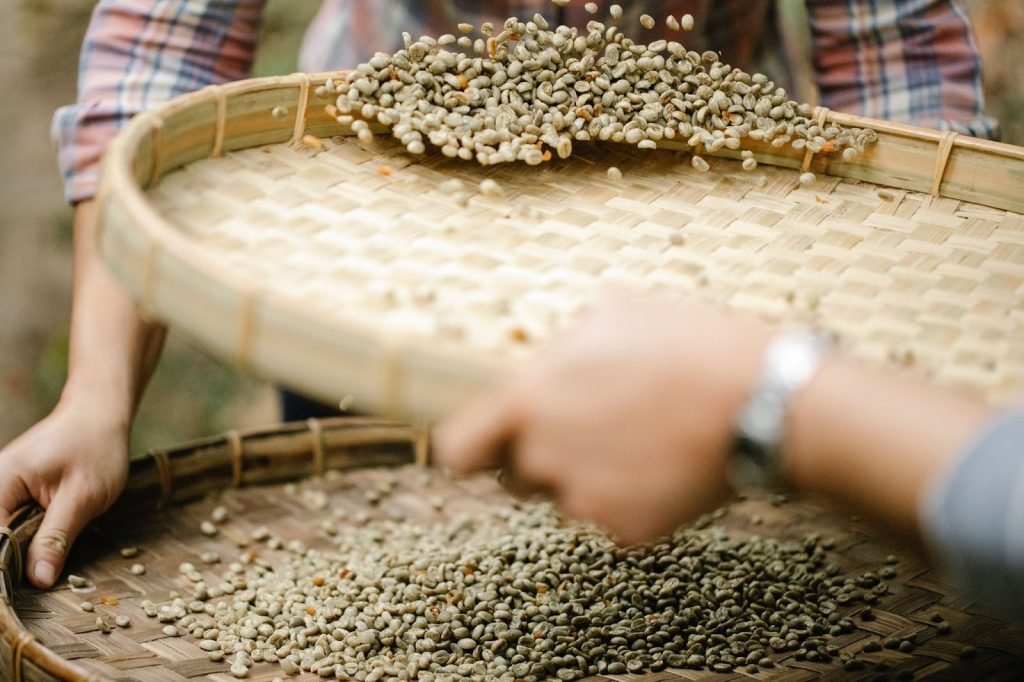Fair Trade Coffee: Unraveling the Positive Impact on the Environment – In this era of globalization, where a cup of coffee can encapsulate a journey of thousands of miles and involve many hands, the Fair Coffee movement is emerging as a beacon of justice and sustainability in the coffee world. Grounded in the values of justice, equality, and sustainability, the movement is not just a trend, but also a voice for coffee farmers in developing countries.
Key Objectives of the Fair Coffee Movement
The main goal of the Fair Coffee movement is to create a fairer and more sustainable coffee trading system for farmers in developing countries. Based on the philosophy that everyone involved in the coffee production process should be properly rewarded for their hard work, the movement strives for three main pillars:
1. Fair Price
One of the main goals of the Fair Coffee movement is to ensure coffee farmers receive a fair price for their labor. By setting prices that are sufficient for production costs and a decent living, the movement helps farmers avoid exploitation and builds financial stability for their communities.
2. Sustainable Agriculture Practices
Fair Trade Coffee promotes sustainable and environmentally friendly agricultural practices. This involves reducing the use of pesticides and chemical fertilizers, conserving biodiversity, and improving water and soil management. By integrating these practices, the movement helps to protect the surrounding natural environment and ensure a green future for future generations.
3. Community Empowerment
The Fair Coffee Movement empowers farmers and local communities by giving them access to education, healthcare, and training in business management. It’s not just about helping farmers understand how to get the best yields, but also about giving them the skills and knowledge to manage their businesses effectively.
Eco-Friendly Farming Techniques in the Fair Coffee Movement
The Fair Trade Coffee movement has a positive impact because it applies environmentally friendly farming techniques to preserve the natural surroundings, minimize negative impacts on the environment, and support the sustainability of the agricultural ecosystem. Here are some of the eco-friendly farming techniques that are often used in the Fair Coffee movement:
1. Organic Farming
Fair Trade Coffee farmers often adopt organic farming methods, which involve the use of natural compost, green fertilizer, and organic pest control. Crops are grown without the use of chemical pesticides or synthetic fertilizers, maintaining soil fertility and minimizing soil and water pollution.
2. Agroforestry
Agroforestry involves planting trees among coffee plants. These trees not only provide habitat for various types of wildlife, but also help reduce soil erosion and improve soil quality.
3. Wise Water Management
Fair Trade Coffee farmers use wise water management techniques, such as drip irrigation systems and rainwater collection. By minimizing water wastage, they reduce pressure on local water resources and support the sustainability of river and lake ecosystems.
4. Environmentally Friendly Pest Control
Instead of using chemical pesticides, Adil Coffee farmers practice natural and environmentally friendly pest control. This includes the use of natural predators, pest plants, and biological control techniques to reduce plant pest populations.
5. Soil Conservation
Soil conservation practices, such as the use of organic soil cover, planting cover crops, and anti-erosion techniques, help prevent soil erosion and maintain soil fertility for the long term.
6. Selection of Disease Resistant Plant Varieties
Choosing coffee plant varieties that are resistant to diseases and pests reduces the need for pesticide use. This helps reduce the negative impact on the environment surrounding the coffee plantation.
By combining these techniques, the Fair Trade Coffee movement not only creates high-quality coffee, but also ensures that the coffee production process is sustainable and environmentally friendly, protecting biodiversity and the surrounding natural ecosystem.
Fair Trade Coffee and Environmental Sustainability
Contribution of the Fair Coffee Movement to Forest Conservation, Biodiversity, and Deforestation Reduction
1. Forest Preservation
– Land Requirement Reduction
Fair Trade Coffee farmers often use farming techniques that focus on intensification rather than extensification. By increasing productivity on existing land, they reduce pressure on forests that might otherwise be cleared to create new farms.
– Protection Forest
Some Fair Trade Coffee farming communities collaborate with nature conservation organizations and the government to establish protected forests around their farming areas. This helps protect existing natural forests and biodiversity.
2. Biodiversity
– Multifunctional Land
In the Fair Coffee farming model, land is often managed multifunctionally, growing not only coffee, but also other food crops, fruits, and herbs. This creates a rich habitat for different types of plants, animals, and microorganisms, supporting biodiversity.
– Traditional Plant Maintenance
Some Fair Trade Coffee farming communities maintain traditional coffee plant varieties that are more resistant to disease and adaptive to the local environment. This helps protect the genetic diversity of coffee and its associated species.
3. Reduced Deforestation
– Economic Empowerment of Local Communities
By empowering local farmers through sustainable agricultural practices, the Fair Coffee movement helps alleviate economic pressures that might otherwise drive illegal deforestation activities. Farmers who generate a decent income from their farms are less dependent on illegal logging.
– Emphasis on Nature Preservation
Through an education and awareness approach, the Fair Coffee movement builds an understanding that the preservation of nature and biodiversity is key to the long-term sustainability of the coffee business. This helps change people’s attitudes towards the importance of protecting forests and reducing deforestation practices.
By creating a more balanced relationship between humans and nature, the Fair Coffee movement not only produces high-quality coffee but also has a positive impact on maintaining forests and biodiversity that are essential to the balance of the global ecosystem. Through the principles of fairness, sustainability, and environmental awareness, the movement is making a meaningful contribution to protecting the earth’s natural resources.









